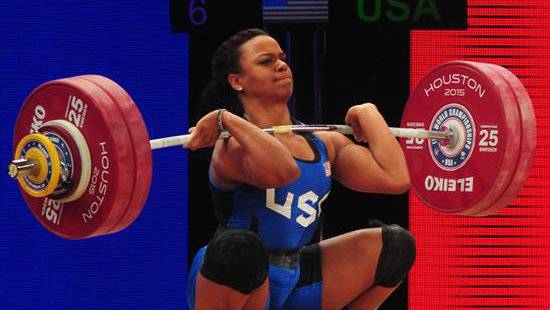In my last article, I discussed the various myths that have arisen over the use of anabolic steroids in sports. Since I found so many myths and had so much to say about them, I soon found I had enough information for another article, so here we go again. This article starts where the last one left off – at the 1988 Olympic Games, where steroid use by Ben Johnson of Canada added fuel to the fire.
Once the Games were over, the myths continued. It seemed that the media split into two camps in regard to the effectiveness of steroids. The ultimate aim of both sides was to discourage the use of these drugs, which is fine on the surface. The trouble is, when you resort to falsehoods to discourage something, it only backfires.
The incredible strength required to lift heavy weight isn’t always achieved by doping.
Myth 1: “Just Train Hard”
On one hand we had the “clean athletes can be as strong as drug ones if they train hard enough” stance. The thought here was that we can all attain world record levels if we just train long and hard enough.
This stance is indeed correct at non-elite performance levels, but it breaks down when you get to the high-performing athletes. Additionally, the idea that one’s genetic limitations may be greater or lesser than others escaped the members of this camp. The fact that steroids can help you move beyond your natural limitations also escaped them.
Myth 2: “All Strong People Are on Steroids”
On the other hand were those who held the “it is impossible to lift heavy weights without steroids” stance. These people suspected everyone who had achieved any sort of strength-related success of using the juice. Tell somebody your squat went from 185lb to 240lb in a month and a half, and you would be suspect.
Even the great performances of the distant past were now seen as possibly steroid induced. Most amusingly, Doug Hepburn, our world champion from the early 1950s, was suspected of getting there via the needle. This myth persisted despite the fact that his heroics were done years before steroids were available, not to mention the fact that much smaller modern lifters routinely outperform Hepburn. Even the revered Babe Ruth is suspected of “using something” back in the 1920s.
Myth 3: “Women Don’t Do That”
Another myth emerged with those of a female chauvinist persuasion. One such person suggested to me that, “only you awful men would do such a thing.” Women are so morally superior that it would never happen with them. Oddly enough, this was a phys-ed professor who should have known that if steroids help men, they’ll really help women.
Even Oprah Winfrey got caught up in this debate. On one of her shows, she and her guest warned about the dangers of using steroids. Fine. But sometime later, she had one female guest who recounted her limited experiment with testosterone. The guest told the audience how empowering these male hormones were, while Winfrey gushed approvingly. Whether or not Oprah realized her contradiction is hard to determine.

Jenny Arthur is an impressive female lifter who qualified for the 2016 Olympic Games in Rio without the use of anabolic steroids.
You’re Not That Elite
In my opinion, the worst thing that happened with the Johnson affair was that it brought the knowledge of steroids to the masses and began the era of non-athletic use of these drugs. People see a Hollywood star with freakishly low body fat and chiseled muscles and often assume he or she must use steroids.
There are two mistakes here. The first is to assume that the movie star in question used steroids at all. The second is to assume that steroids were what caused the low body fat condition in the first place. Nevertheless, steroids are seen as the key to getting that six-pack look, and another illicit user is born.
And then there are the people who are convinced they need to use steroids in order to improve their athletic performance. I asked one such sprinter how much he could squat. He answered 185lb. While I do not advocate steroid use at all, this kid shouldn’t even be tempted to resort to drugs. If your squat PR is only 185lb, you are years away from even thinking about steroids.
Knowledge Is Power
Originally, people thought athletes took steroids because they were uneducated. But it turns out many athletes knew more about steroids then the medical people who tried to discourage their use.
Education is still what the non-athletic and non-elite athletic populations need. These are the people who are most subject to these myths. They need to realize these drugs are not a harmless shortcut.
Bottom line: you cannot alter the human body without paying a price. There is not a single drug on the market that does not have adverse side effects. You have to measure these against their beneficial effects in order to determine if use of the drug will be worthwhile. That’s true even of aspirin, and it is especially true of anabolic steroids.
To be continued. Now get back to the gym.
You’ll Also Enjoy:
- The Pursuit of Excellence: Early History of Doping in Sports
- A Question on Drugs: Do You Uphold Our Double Standard?
- Training Athletes 30 Years Later – Has Anything Really Changed?
- New on Breaking Muscle Right Now
Headline photo courtesy of Wikimedia.
Photo 1 and 2 courtesy of Breaking Muscle/Bruce Klemens.






